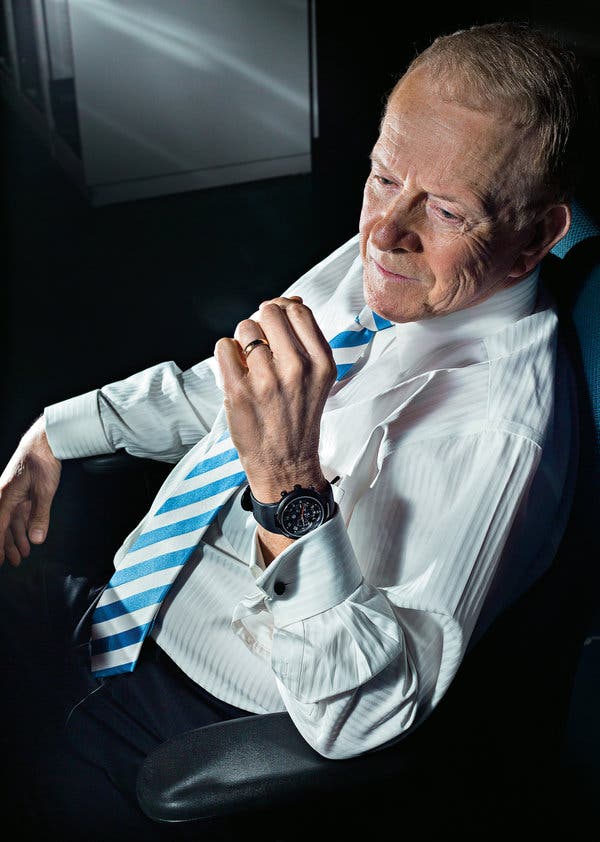
A dozen years ago, the authors of a popular blog in the state of Oklahoma took a poll: “Who is the most powerful person in our state?”
Jesus came in second – a rather surprising outcome, given that Oklahoma is widely regarded as the buckle on the Bible Belt.
Chief meteorologist Gary England of KWTV, the CBS affiliate in Oklahoma City, came in first. For residents of the Sooner State, for whom springtime is often tornado time, a weather forecaster who relates to ordinary viewers and accurately warns of deadly storms is indeed a powerful person. And Gary England checked both of those boxes.
England originally imagined becoming a pig farmer. Then he caught the weather bug. In the early 1970s he dreamed of landing a job as a storm reporter for a local TV station. But he was so unrefined and uncultured – “folksy” is the word usually associated with him – that OK City’s media power brokers politely declined.
Once he got a chance to stand before the cameras, however, England won the hearts of his viewers. More importantly, he accurately predicted the development and progress of a number of destructive storms.
Before he retired in 2016 after 41 years at KWTV, England had been live and on the air for at least six of the most devastating tornadoes in meteorological history. On May 3, 1999, an F5 tornado with 302 mph winds – the strongest gusts ever recorded on the surface of the earth – obliterated a large section of Moore, a small community just south of Oklahoma City. The twister killed 36 people and injured 500 others. Inconceivably, another F5 tornado hit Moore on May 20, 2013, taking 25 lives (including seven children who were buried under the rubble of their third-grade classroom). Two weeks after that, the El Reno tornado tore through the countryside just west of OK City. It was 2.6 miles wide – the largest tornadic system ever observed.
During these disasters, Gary England had one abiding concern. How could he keep people safe? How could he prevent needless loss of life?
England helped pioneer multiple industry “firsts” when it came to warning viewers of impending danger. He singlehandedly introduced Doppler radar – an obscure invention that skeptics doubted had any application to meteorology. In 1990 he helped create First Warning, the state map that commonly appears in the corner of TV screens highlighting counties under threat of severe storms. Next came Storm Tracker, a computer program that accurately predicts the speed and direction of violent weather.
How did Gary England achieve the status of Godfather of Weather in a state known as the cradle of meteorologists?
He cared. He worried about his viewers. Between March and June – the tornado season in Oklahoma – he rarely slept. When the National Weather Service hesitated to be specific about the progress of storms (tornadic behavior is notoriously hard to predict), England would brashly name specific streets and neighborhoods where “you’d better taker cover immediately, if you want to live.”
People listened. Because he was often right, he undoubtedly saved lives. Politicians were terrified he might one day run for public office, since he had accrued more credibility than anyone else in the state.
As Holly Bailey reports in her book The Mercy of the Sky – a detailed account of the 2013 Moore disaster – England gradually became a living legend, an anti-tornado superhero. A storm survivor spray-painted on his mangled garage door, “Gary England saved my life.” When England retired, a viewer named Shannon wrote, “No, you can’t leave us! Who will protect us now, Gary?” A viewer named Bryan wrote, “I’m scared of next year’s tornado season already.”
During his four decades on the air, England embodied the qualities of one of the most important characters in ancient Israel.
He was a watchman.
During Bible times, watchmen were charged with sounding warnings to the residents of a walled city. They would typically stand on parapets and survey the horizon for approaching danger. Some of them ultimately took on the role of prophets, warning people that they needed to recognize impending concerns and get their lives in order.
Every healthy church needs a few watchmen and watchwomen who can read “the signs of the times” and help God’s people respond.
That’s clear in verses like Hebrews 13:17: “Obey your spiritual leaders and do what they say. Their work is to watch over your souls…”
Significantly, Jesus makes it clear that if you’re part of his band of followers, you’re in the watching business, too. He tells his disciples in the Garden of Gethsemane, “Watch and pray so that you won’t fall into temptation” (Mark 14:38). In his parable of the wise and unwise servants (Luke 12:35-40), he warns that “it will be good for those servants whose master [who has gone away on a trip] finds them watching when he returns.”
Watching means paying attention.
We pay attention to God and we pay attention to our own lives. And with massive doses of gentleness and humility, we pay attention to the lives of those around us – not to boss them around, but to be part of the priceless fabric of a community in which people actually care about each other, and care how all of our lives are turning out.
What we know for sure is that there will always be another storm on the horizon.
But if we’re blessed by the gifts of faithful watchers, we can make it through the storm together.
